
Sign in to your Collider account
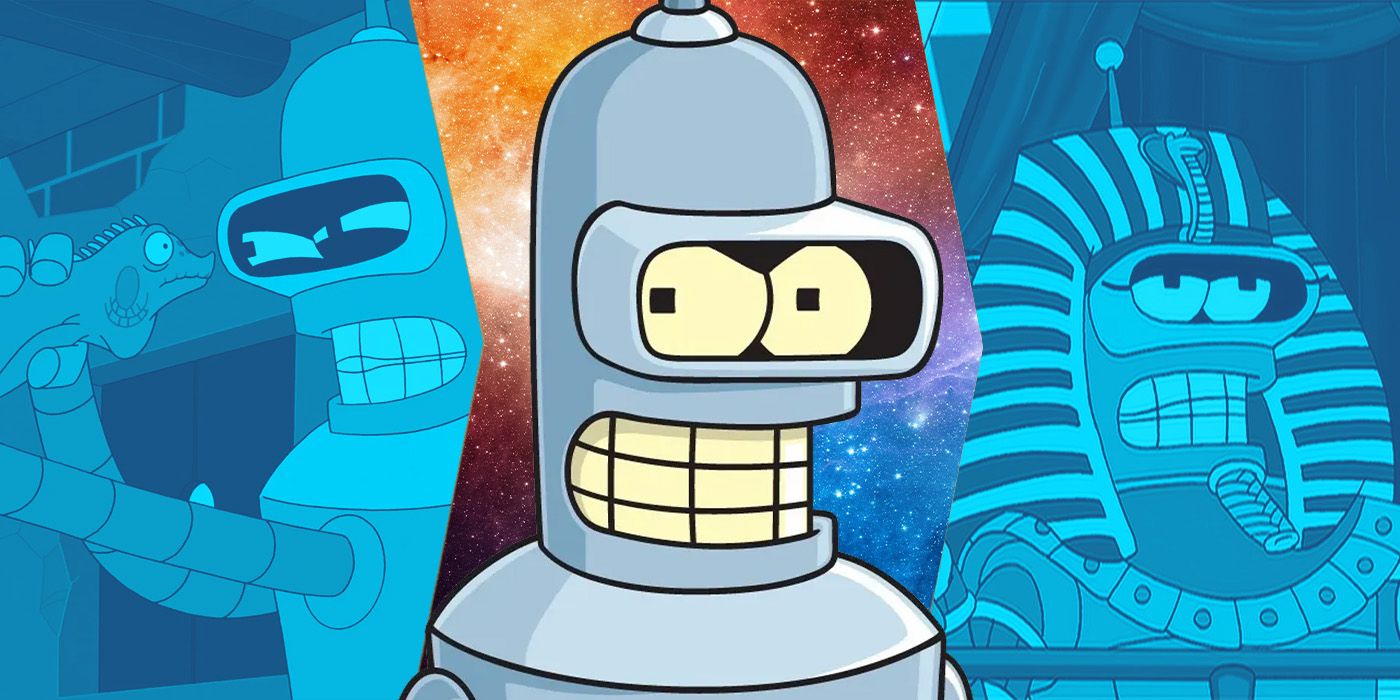 Custom Image by Zanda Rice
Custom Image by Zanda Rice
For 12 seasons and counting, animated sitcom Futurama has given audiences an entertaining glimpse at what our future might hold. It follows pizza-delivery boy Fry (Billy West) after he is accidentally frozen in 1999 and wakes 1,000 years later on New Year's Eve, 2999. The show first premiered in 1999, and its original run on Fox lasted until 2003. It was then revived by Comedy Central for an additional three seasons, before being brought back yet again by Hulu a decade later.
Each character in Futurama has their own crop of episodes which stand out, but perhaps none are as entertaining as episodes centered on the robot Bender (John DiMaggio). The series without the lovable yet crass drunk robot is unimaginable—but almost became a reality. Bender's best episodes aren't just entertaining ones detailing his antics, but Bender's status as a robot means his best episodes also deal with the larger themes of religion and existence as we know it.
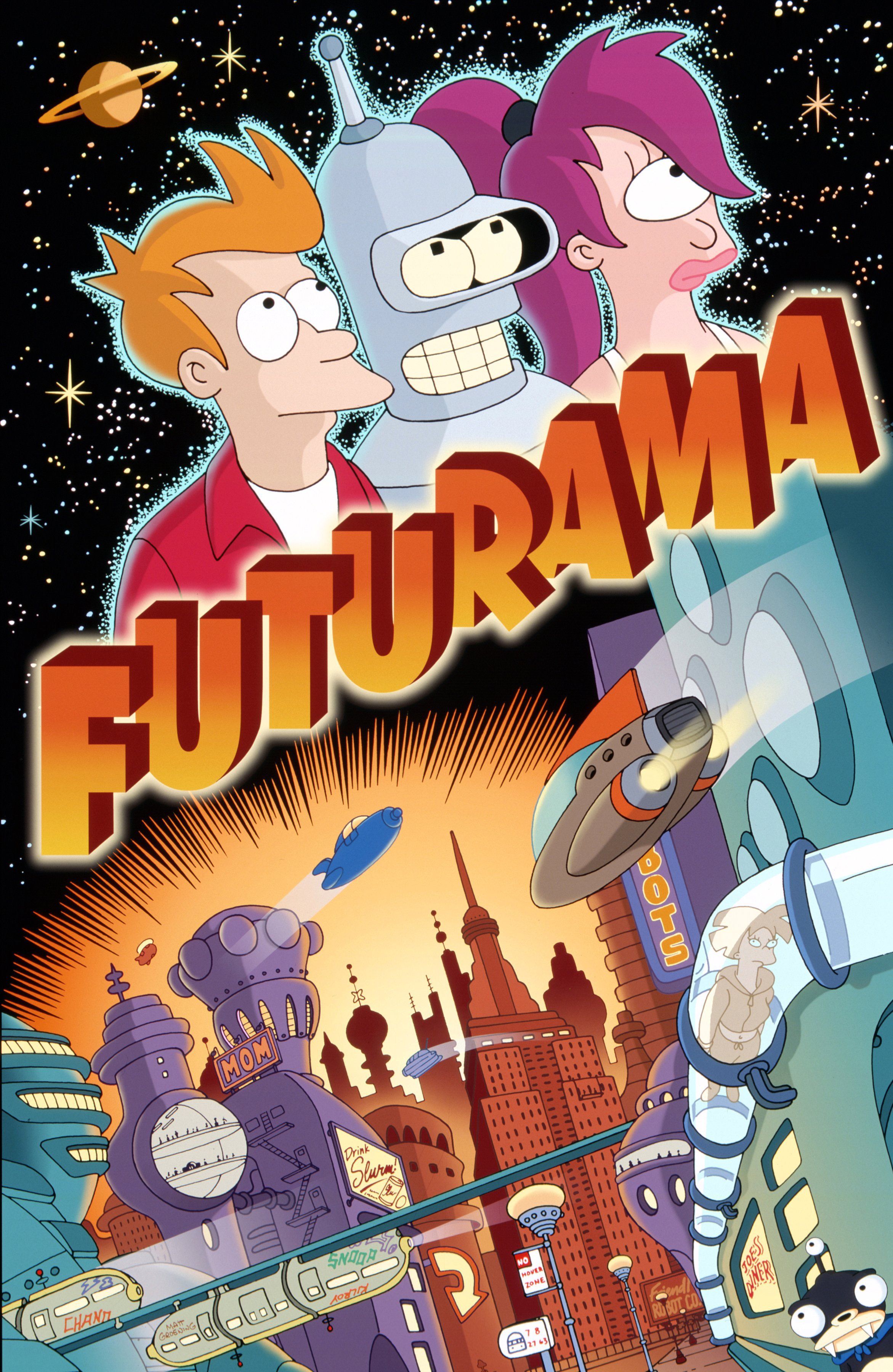
Futurama follows the exploits of Philip J. Fry, a pizza delivery boy from 1999 who is cryogenically frozen for 1000 years. Waking up in the year 3000, Fry befriends a cyclops named Leela and a roguish robot named Bender, and the three find employment with Planet Express, an interplanetary delivery service. Their work takes them to all corners of the universe, exploring space and the future as imagined by Matt Groening and the creators of The Simpsons.
Release Date March 28, 1999
Seasons 12
Studio Comedy Central
10 "Overclockwise"
Season 6, Episode 25
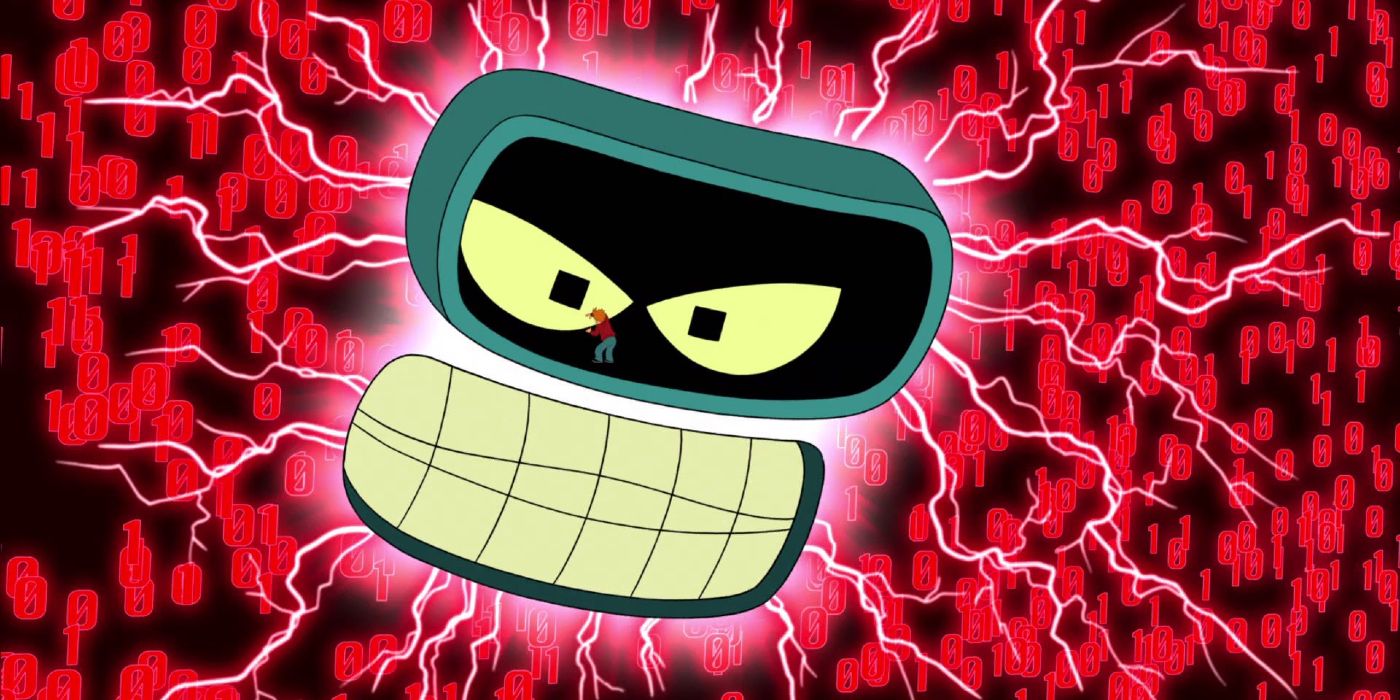 Image via Comedy Central
Image via Comedy Central Bender becomes a god-like figure capable of predicting the future in “Overclockwise” after being overclocked by Cubert (Kath Soucie) in order to make him process faster. At risk of overheating, he leaves Planet Express in search of a better coolant, and because overclocking is a violation of his license agreement, Mom (Tress MacNeille) sues Cubert and the Professor (Billy West). Meanwhile, Leela (Katey Sagal) decides to break up with Fry and move on.
Bender as God was a concept Futurama had explored before (and to better results). Although “Overclockwise” is a great episode, omniscient Bender had the potential to do so much more. Still, it has some great moments from him, including some hilarious use of his power. The best part of the episode, though, was more sentimental. Bender gives Fry and Leela a look at their future, leading to a sweet, moving ending that could’ve served as a series finale.
9 "The Prisoner of Benda"
Season 6, Episode 10
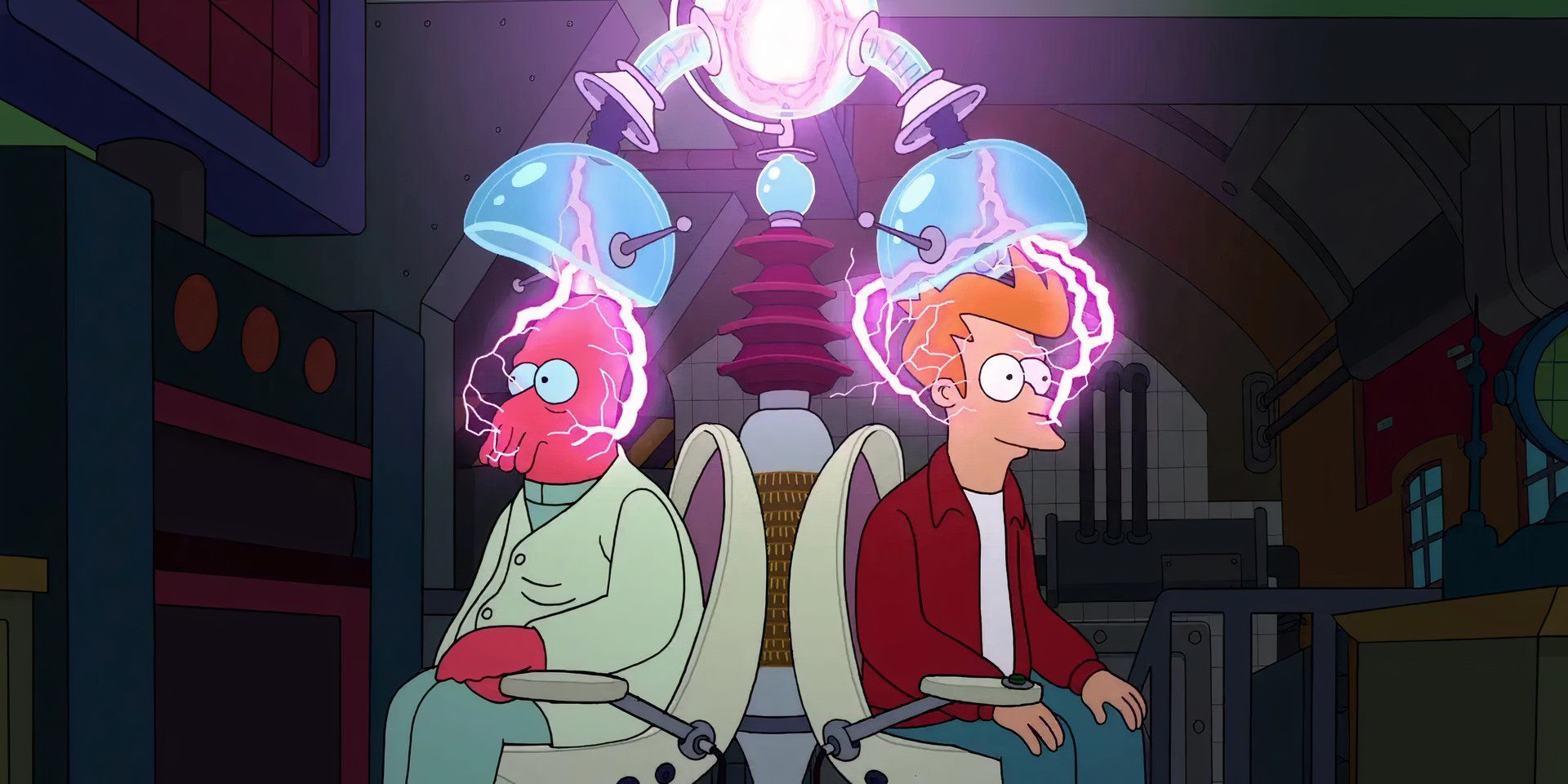 Image via Comedy Central
Image via Comedy Central In “The Prisoner of Benda,” Professor Farnsworth creates a machine which allows two people to swap bodies—but it can not be used on the same set of bodies twice. The device leads all characters to swap with someone else, each for their own reasons. Bender switches with Emperor Nikolai (David Herman) of the Robo-Hungarian Empire, making him the emperor, but the job comes with tasks like giving a speech to the UN.
The fact that each character retains their voices no matter whose body they were in makes the constant switching and plot easier to follow. In Bender's case, because he is often interested in power, his scheme to take over Nikolai's body and become emperor is no surprise, but it turns out the role is more demanding and complex than he anticipated. This episode isn't just one of Bender’s best—it's considered one of the best in the series.
8 "The Honking"
Season 2, Episode 18
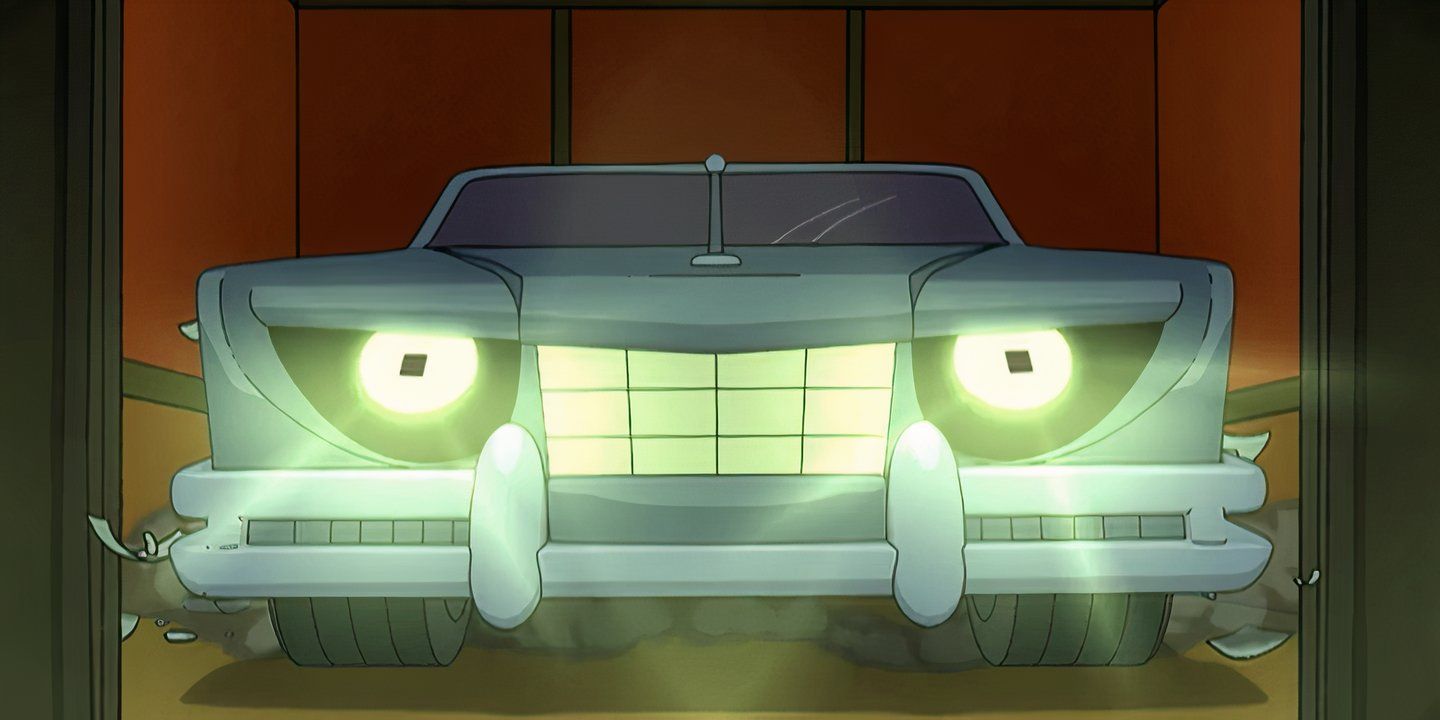 Image via Fox
Image via Fox In “The Honking,” Bender’s late uncle leaves him a gothic castle in his will, under one condition— Bender has to spend an entire night in it in order to inherit it. While there, he begins to experience strange things, sending him running scared before the Professor is able to give him the logical explanation for the occurrences and leading him to be run over by a car, thereby becoming a were-car.
“The Honking” is a great episode for Bender's character overall, with plenty of great jokes. Part of what makes it so fun and entertaining was that, rather than being the cause of a number of problems, Bender is more of a victim here, and his humanity was on full display as a result. The episode also references horror movies. It acts as a parody of the werewolf movie The Howling, with added references to The Haunting, Christine, and other horror classics.
7 "Bender Gets Made"
Season 2, Episode 13
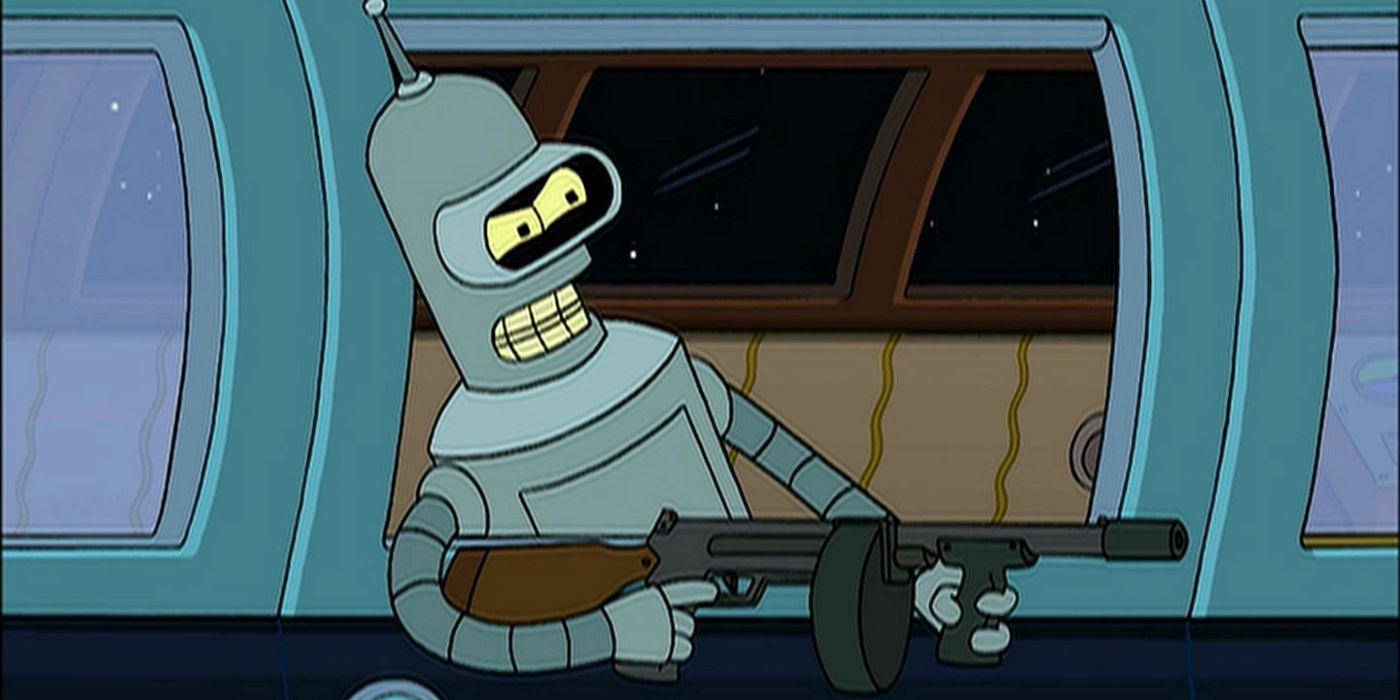 Image via Fox
Image via Fox After being unable to pay for an expensive dinner with Elzar (John DiMaggio), Bender offers to work off his debt and is finally invited to join the robot mafia in “Bender Gets Made". They want him to help with a Zuban cigar heist, but things got complicated when Bender learned the cigars were being carried by Planet Express. He successfully pulls off the heist and saves his crew without any of them finding out.
Bender’s desire to join the mafia is yet another quest for power, and he finally gets what he wanted in “Bender Gets Made”, only to realize why the mafia isn't the best group to align with, after all. The episode was a classic one for Bender, full of his familiar hijinks as he tries to play both sides without getting caught. In the end, his dedication to his friends proves that he isn’t so selfish after all.
6 "Lethal Inspection"
Season 6, Episode 6
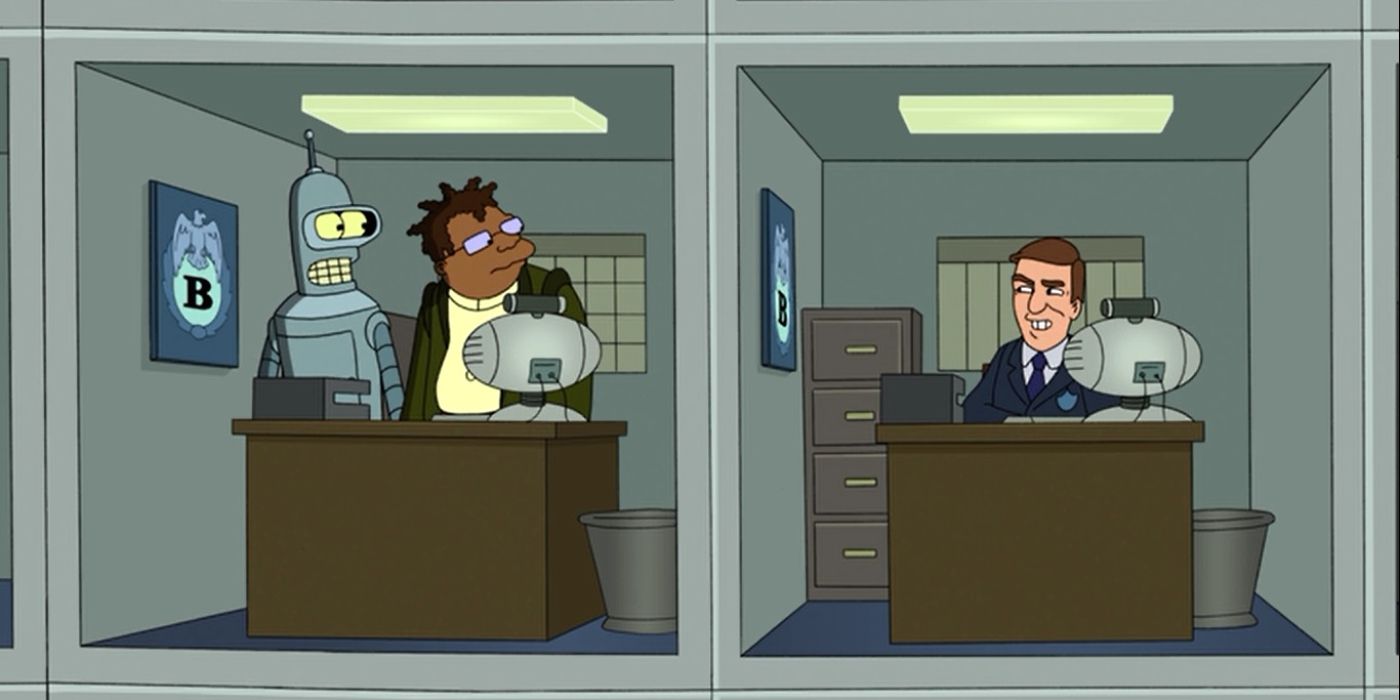 Image via Fox
Image via Fox Bender discovers he has no backup abilities because of a factory defect in “Lethal Inspection.” The defect effectively makes him mortal, meaning his mind can't be downloaded into another body if his current one were destroyed. Hermes (Phil LaMarr) accompanies him to the plant in Tijuana where he was built in his quest to identify and find the inspector responsible for the error, which is ultimately revealed to be Hermes himself.
“Lethal Inspection” is a notable episode for Bender, as it explores his past and challenges his notions of his own mortality. It also stays true to his character by focusing on anger and revenge; yet, it's still a moving episode which managed to have some notable tearjerker moments. It also features great work from voice actor John DiMaggio, especially as Bender realizes the implications of the mistake and exposes his true fear of death.
5 "The Bots and the Bees"
Season 7, Episode 1
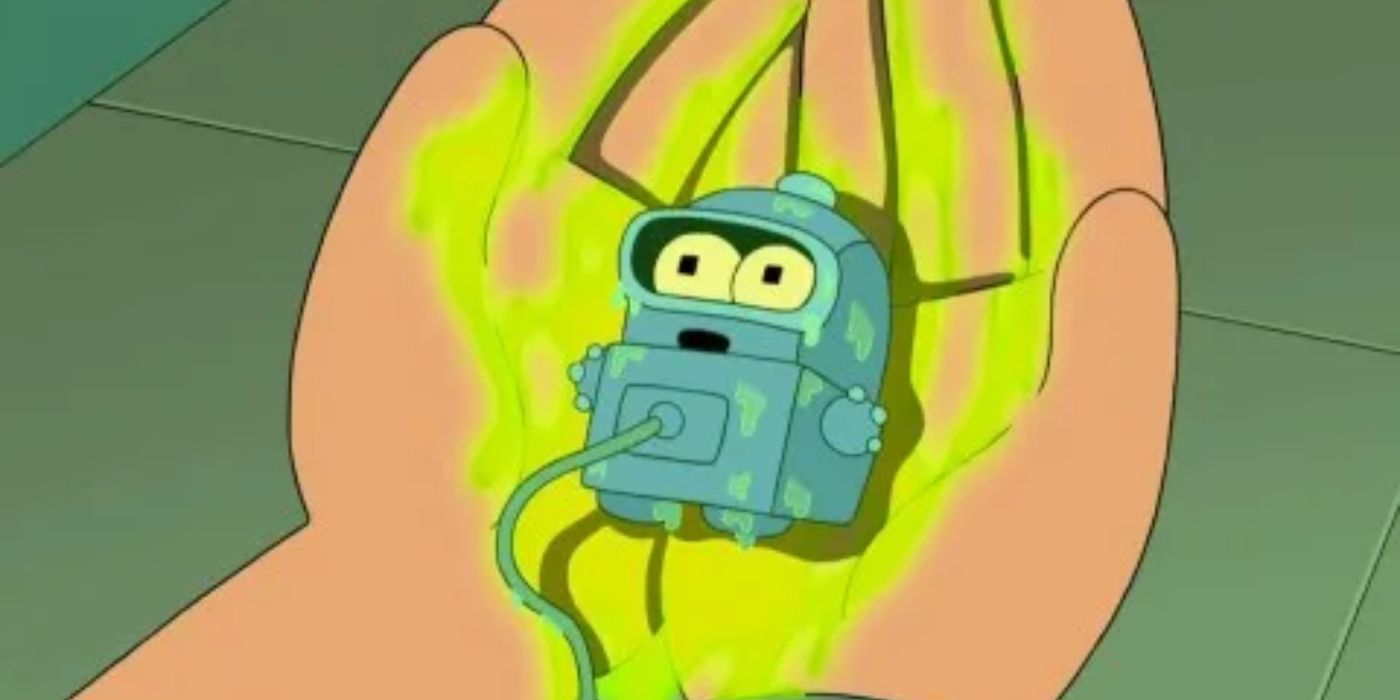 Image via Comedy Central
Image via Comedy Central In the Season 7 premiere, Professor Farnsworth gets a new sentient robotic beverage vending machine called Bev (Wanda Sykes). After trading jabs, Bender and Bev have sex; when Bev gives birth to a son the next day, it's clear Bender is the father. He steps up and accepts his role as a father, but Bev isn't the best mother. Meanwhile, with such easy access to the vending machine, Fry developed an addiction to Slurm Loco.
The strange logistics of robotic genetics has come up a few times in Futurama, but few episodes address the subject as wonderfully as the aptly titled “The Bots and the Bees.” It's a heartfelt episode which proves there is so much more to Bender than anyone thought, depicting him as a caring father. Plus, Fry's Slurm addiction is an entertaining touch.
4 "Hell Is Other Robots"
Season 1, Episode 9
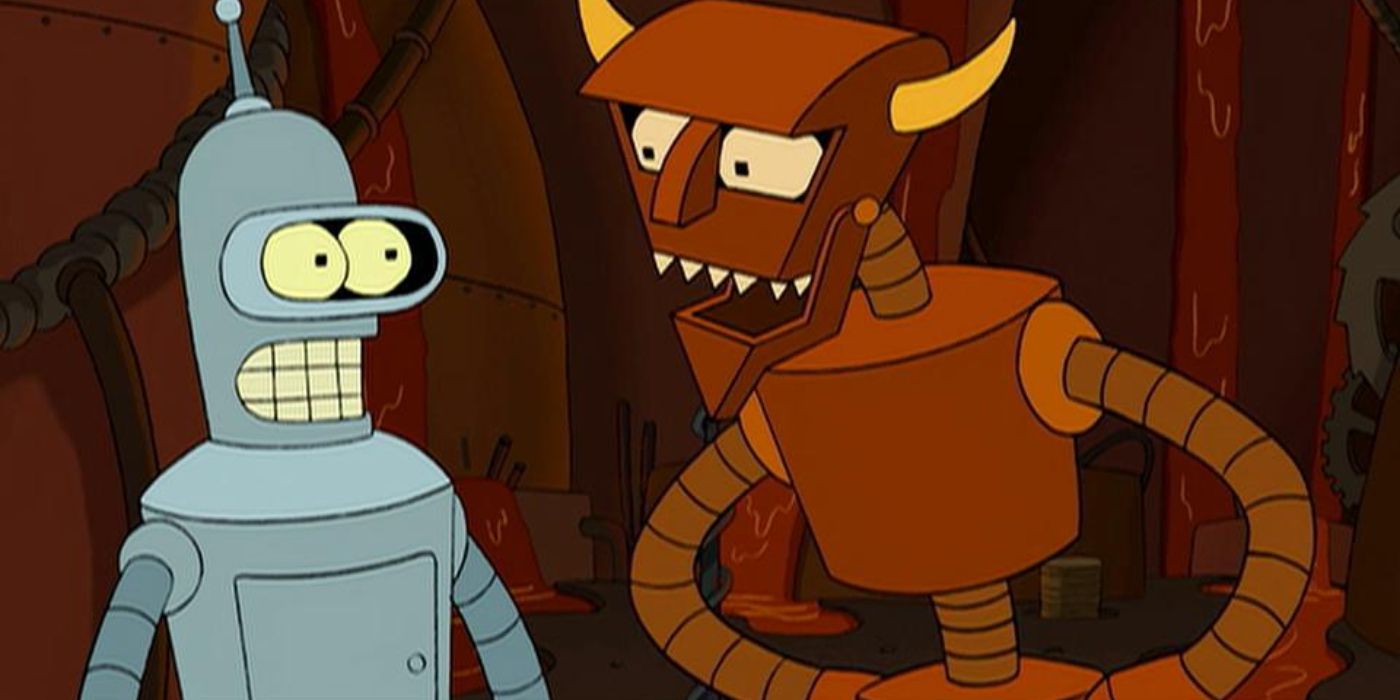 Image via Fox
Image via Fox In “Hell Is Other Robots,” Bender battles an addiction to electricity and joins the church of Robotology. However, the others get annoyed with his newfound piousness and tempt Bender with his many vices, leading him to relapse. As a result of abandoning his religion, he is kidnapped by the Robot Devil (Dan Castellaneta) and sent to Robot Hell. Fry and Leela set out to rescue him, and the only way to do so is by winning a fiddle contest for his soul.
One of Bender's most iconic episodes came early, with Season 1's “Hell Is Other Robots”, and it's also the first to focus on him. The episode highlighted Bender's many vices while also commenting more broadly on religion, a sign of the way the show would approach larger concepts in the seasons to come. It also includes a memorable guest appearance from the Beastie Boys.
3 "Bender Should Not Be Allowed on TV"
Season 5, Episode 15
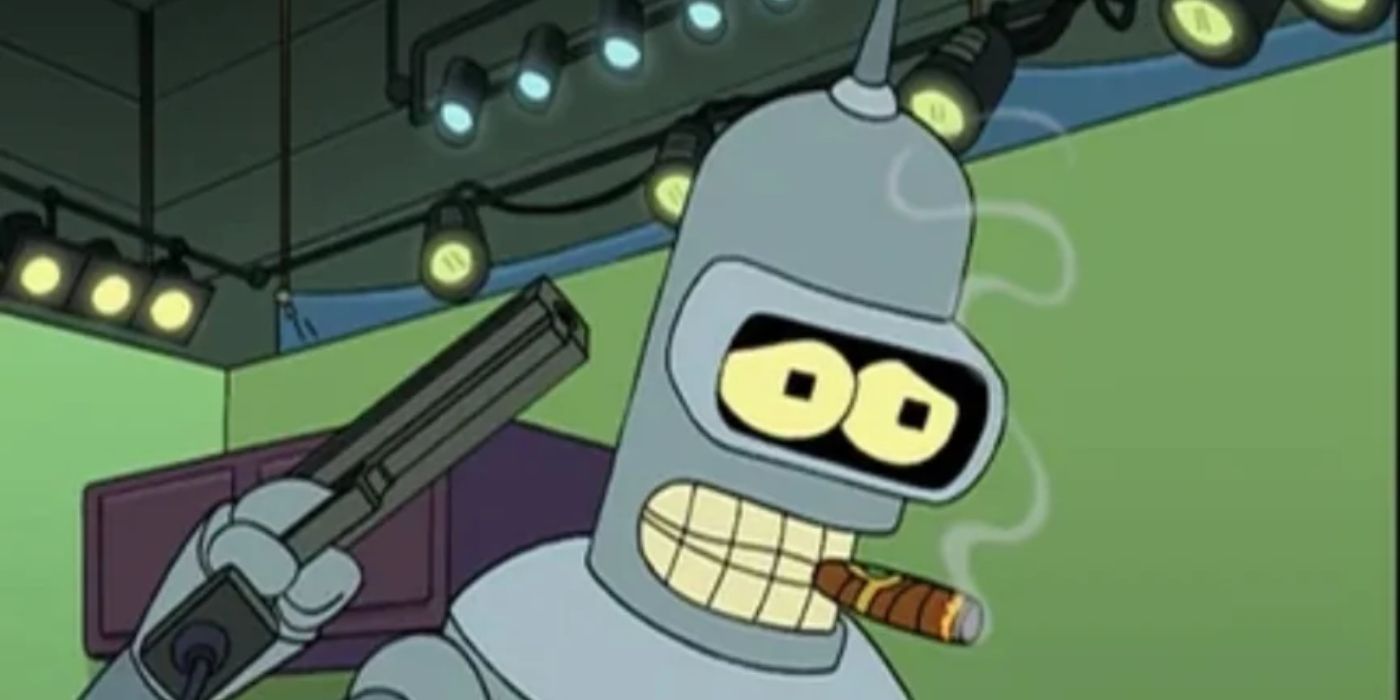 Image via 20th Television
Image via 20th Television In “Bender Should Not Be Allowed on TV,” Bender lands a starring role in All My Circuits, his favorite soap opera. Being Bender, he refuses to go along with the plot or say his scripted lines. Instead, he appears on the show essentially as himself, and as a result, he is quickly criticized by viewers for setting a bad example for children. In response, a group of concerned parents start the organization FART—Fathers Against Rude Television.
Bender's time as a TV star goes about as well as could be expected. Bender's crass behavior was destined to draw the ire of concerned parents the universe over. “Bender Should Not Be Allowed on TV” gives Futurama fans some of Bender's funniest moments by allowing him to be himself. The episode is also a larger commentary on moral outrage and parenting choices, as well as a parody of soap operas.
2 "A Pharaoh to Remember"
Season 3, Episode 17
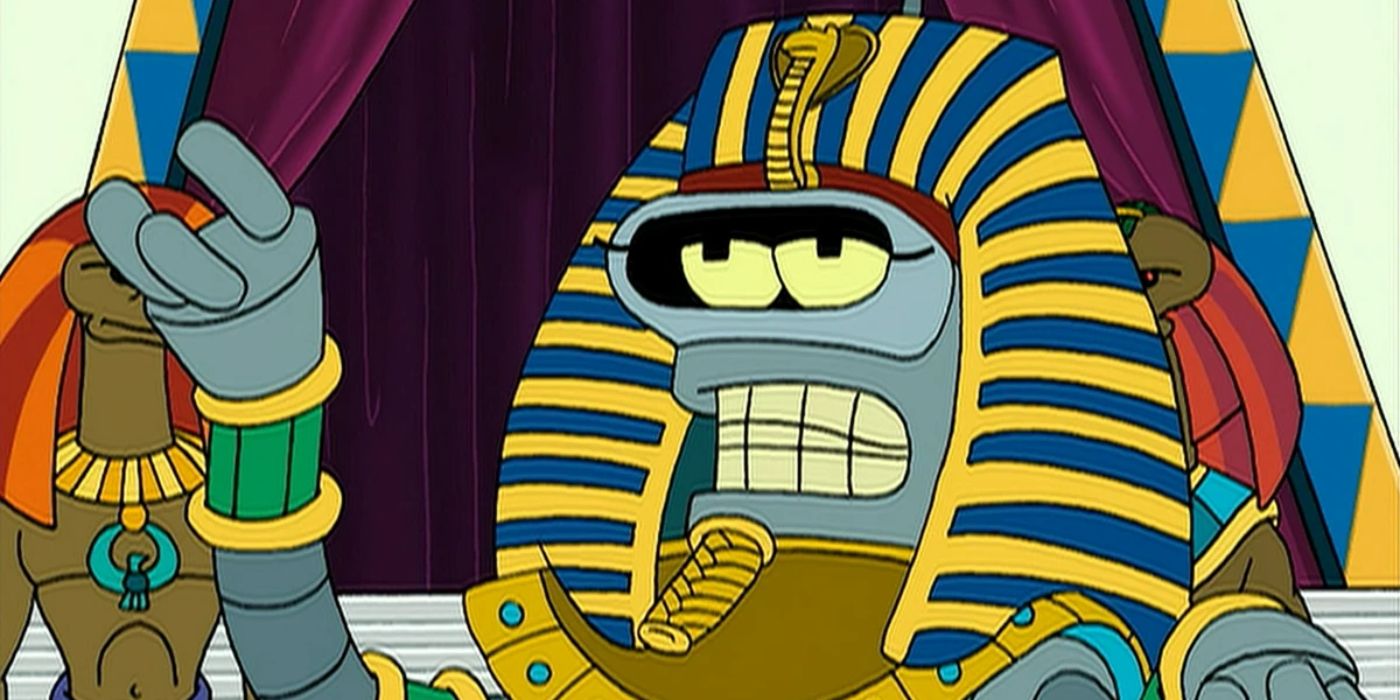 Image via Fox
Image via Fox After landing on a planet similar to Ancient Egypt, the crew is enslaved to help build a pyramid in “A Pharaoh to Remember.” Bender, who had been worrying that no one would remember after he was dead and made some failed attempts at becoming famous, admires the pharaohs' methods of securing their legacy. By becoming a workaholic, he eventually becomes pharaoh himself and demands the workers, including Fry and Leela, build him the biggest monument ever.
Bender has many addictions, and it's shocking that work is one of them, less so when it becomes clear that it was about attention and power for him. While other episodes show Bender subverting audience expectations, in “A Pharaoh to Remember,” Bender is exactly the terrible ruler one would expect. The episode's title was also a reference to the film An Affair to Remember.
1 "Godfellas"
Season 3, Episode 20
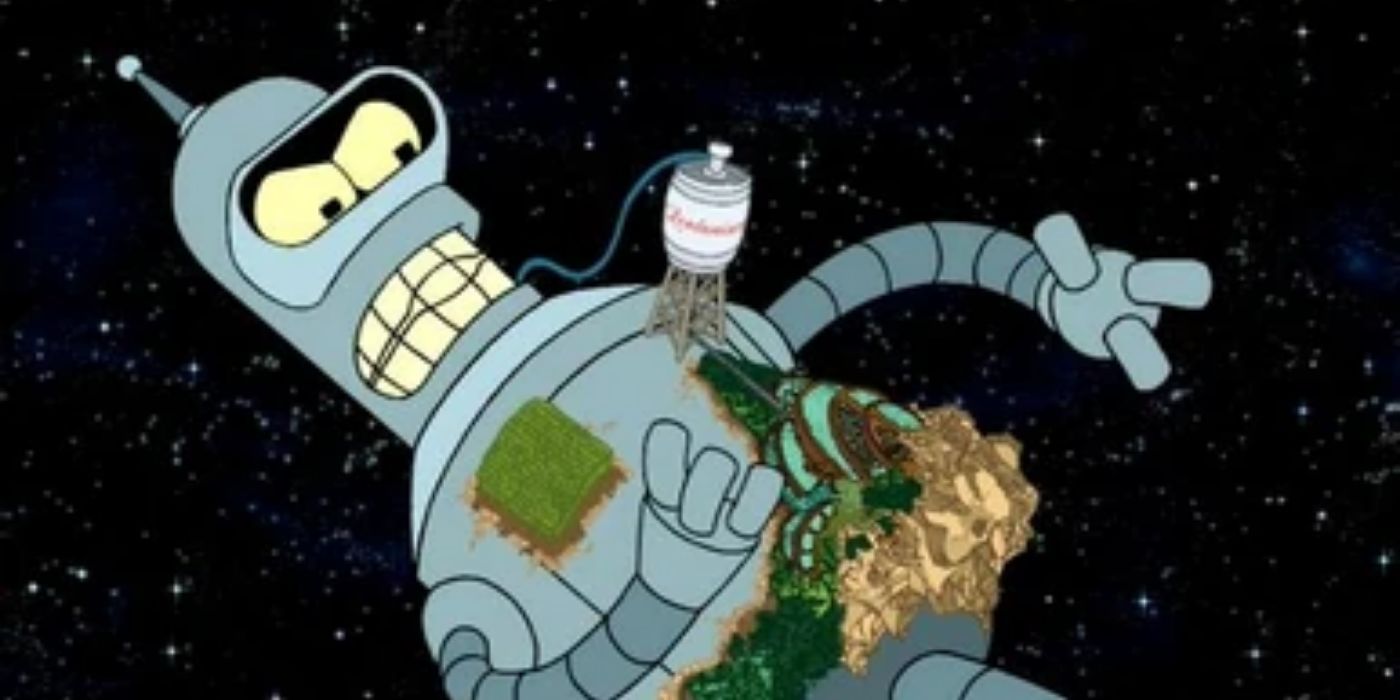 Image via 20th Television
Image via 20th Television Bender has a spiritual experience after being launched into space accidentally during a battle with space pirates in “Godfellas.” After an asteroid hits him, a miniature civilization called the Shrimpkins develops and worships Bender as their god, all while Fry is trying to find him. At first, Bender uses the Shrimpkins for his own selfish purposes, like brewing beer. He then tries to help them, which causes their own unique problems.
Often hailed as one of the best episodes for Bender and Futurama as a whole, “Godfellas” explores the themes of religion and existence, like some of Bender’s other notable episodes. It's also a great episode for Bender's character. While he indulges his selfish impulses at first, he becomes aware of the impact he has on others. The episode features some great moments not only from Bender but even God himself, including some of the most surprisingly profound quotes of the series.


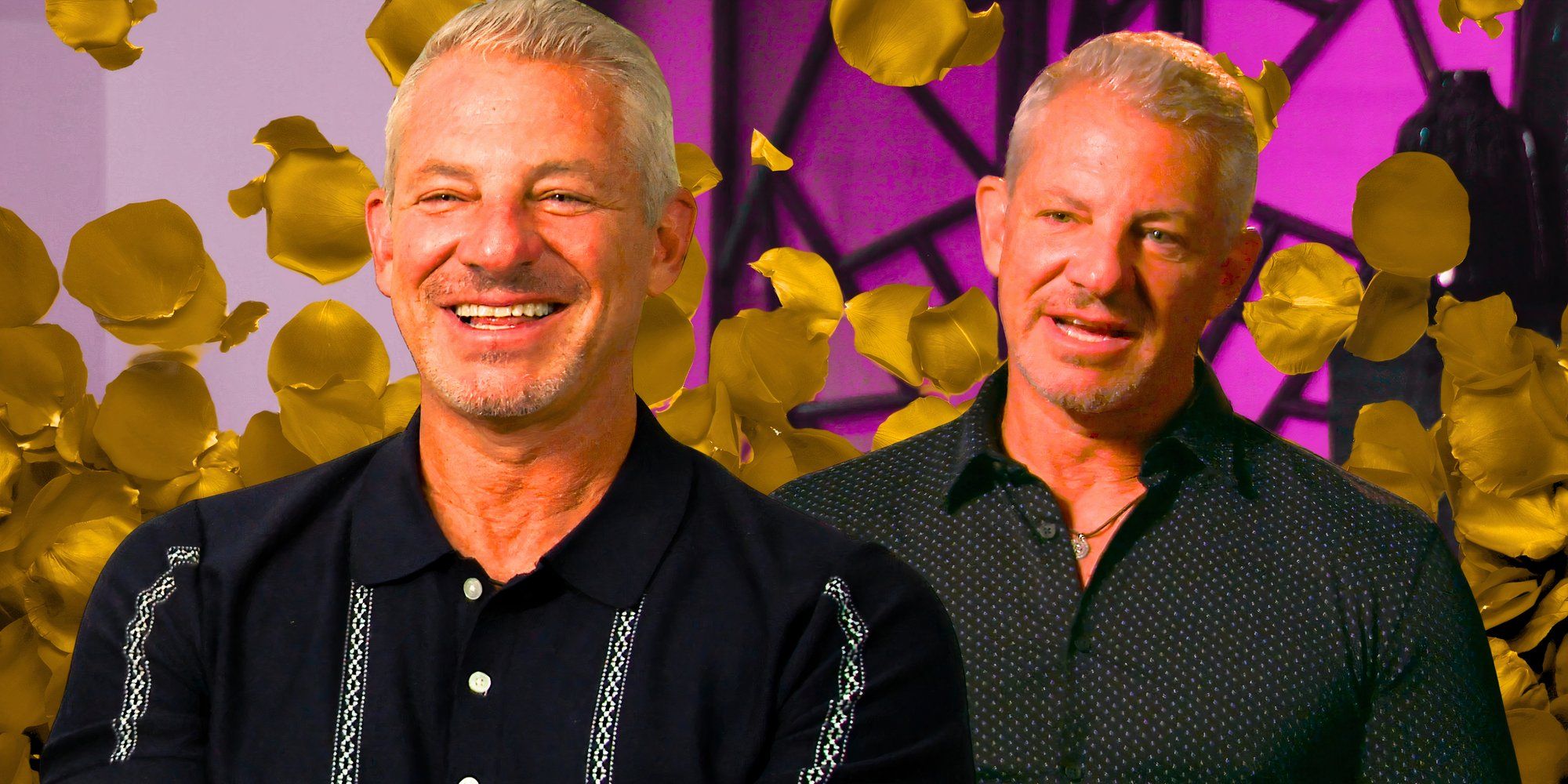



:quality(85):upscale()/2024/11/05/936/n/1922153/cc2bbd68672a8e1588a964.53876938_.webp)
:quality(85):upscale()/2024/08/06/667/n/1922794/4bc1ce8866b23aaf319c84.46755244_.png)

 English (US) ·
English (US) ·